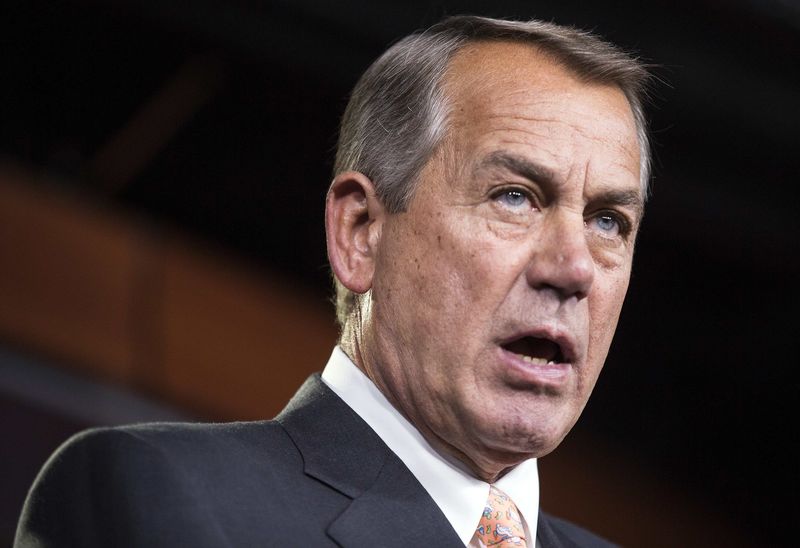By David Lawder and Richard Cowan
WASHINGTON (Reuters) - Republican defense hawks in the U.S. Congress moved on Thursday to boost military funding in their budget plans, setting up a clash with fiscal conservatives in their party as the spending blueprints head to crucial votes next week.
The Republican-controlled Senate Budget Committee approved its plan with an amendment to add $38 billion to an off-budget war funding account to boost military spending for fiscal 2016.
The move, aimed at skirting statutory spending caps, matches a $38 billion increase also now proposed in the House of Representatives. The House and Senate are due to vote next week on their budgets, which aim to cut 10-year spending by $5.5 trillion and $5.1 trillion, respectively.
House Speaker John Boehner on Thursday directed the House Rules Committee to add another $2 billion to the $36 billion increase originally proposed for the war funding account, and delete language in the House budget that would require alternate savings.
"There is overwhelming support in our conference for providing additional resources to protect our national security," Boehner, a Republican, told reporters.
Such efforts will alienate Republican fiscal conservatives who want to maintain "sequester" spending caps and do not want to boost budget deficits to aid the military. These divisions could threaten passage in the Republican-controlled House, where Boehner cannot count on any Democratic votes.
"I would rather keep all the levels lower and stick to the sequester," Representative Justin Amash said. The conservative Republican added that he could not support a budget with defense increases that are not paid for.
Passing the budget plan is normally a partisan show of unity for a non-binding document that lays out fiscal priorities and influences election campaigns.
However, about 70 House Republicans have pledged to vote against a budget that fails to match Obama's request for a $561 billion core defense budget and $51 billion in off-budget war funding. The defense hawks argue that "sequester" spending caps enacted in 2011 are eroding the military's capacity.
Earlier on Thursday, the House Budget Committee advanced its budget plan in a debate that laid bare Republican disagreements over defense funding, signaling the plan might have trouble passing the full chamber.
The fiscal 2016 budget resolution passed on a party-line vote of 22-13 after the panel's chairman, Representative Tom Price, pulled provisions from an amendment to make it easier to increase defense funding without finding alternative savings.
Disagreements over the amendment caused an overnight delay in its approval by the panel. Boehner's action will restore the deleted provisions in the version that goes to the House floor next week. With these changes, the House budget plan will keep the fiscal 2016 defense cap of $523 billion and add $96 billion into the war account for a total of $619 billion.

The Senate Budget Committee also approved defense funding increases of $17.6 billion for fiscal 2017 and $12.1 billion for fiscal 2018, along with amendments aimed at finding more money for the military's civilian workforce and disabled veterans.